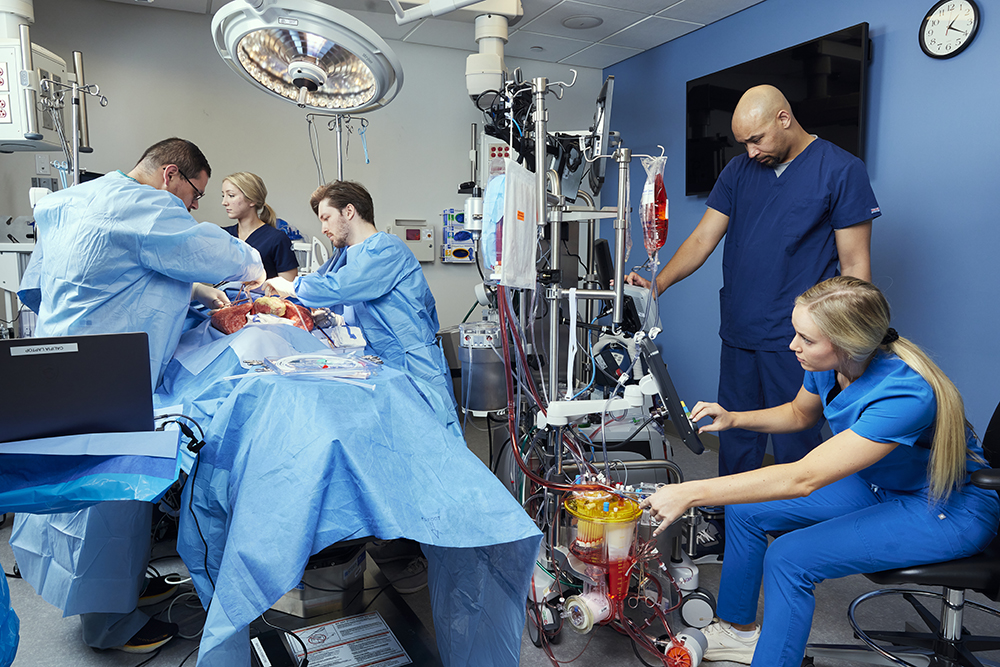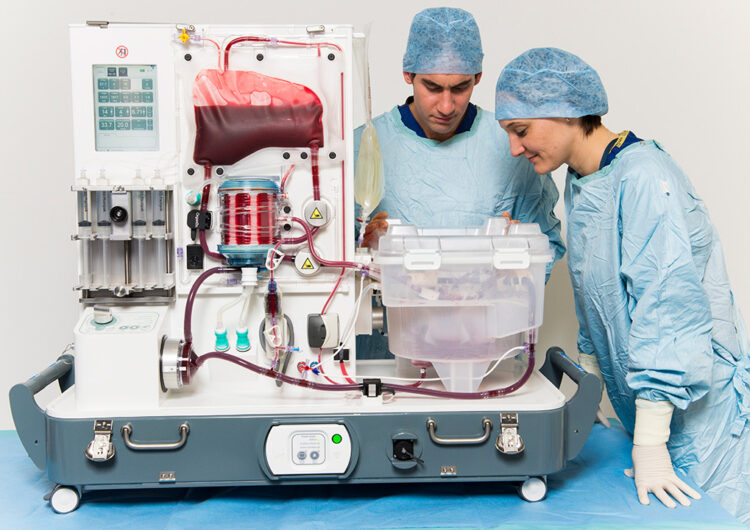Perfusion Technology is a specialized area of healthcare that plays a critical role in cardiac surgery and other medical procedures involving heart and lung support. Perfusion technologists, or perfusionists, operate heart-lung machines and other devices that temporarily take over the function of the heart and lungs during surgical procedures. This field offers both a challenging and rewarding career path, where highly skilled professionals are essential to successful patient outcomes. Here, we’ll explore what a Perfusion Technology Program involves, career prospects, and why it may be a suitable choice for aspiring healthcare professionals.
What is Perfusion Technology?
Perfusion technology is primarily concerned with the operation of heart-lung machines during cardiac surgery and other procedures where maintaining circulatory and respiratory functions is essential. A perfusionist manages these devices, monitors the patient’s vital signs, and controls blood flow and oxygen levels. In short, they ensure that a patient’s blood is well-oxygenated and circulated during times when the heart is not beating.
Overview of a Perfusion Technology Program
Perfusion technology programs equip students with the technical skills and medical knowledge needed to perform in high-stakes surgical environments. These programs, usually offered at the bachelor’s or master’s level, cover a blend of theoretical and practical training over 2-4 years, depending on the level of study. Common course topics in a perfusion technology program include:
- Human Anatomy and Physiology: Understanding the human cardiovascular and respiratory systems is foundational for perfusionists.
- Cardiopulmonary Bypass Techniques: Training on using heart-lung machines and managing cardiopulmonary bypass during surgeries.
- Medical Instrumentation and Equipment: Learning to operate, troubleshoot, and maintain various types of medical equipment.
- Pharmacology for Perfusionists: Knowledge of drugs and anesthetic agents used during surgical procedures.
- Clinical Practicum: Hands-on training in clinical settings, where students work under the supervision of certified professionals.
Programs may also incorporate classes on bioethics, patient safety, and research methodology to prepare students for all aspects of the role.
Skills Acquired in a Perfusion Technology Program

Completing a perfusion technology program equips students with both technical and interpersonal skills necessary for a high-stakes environment:
- Attention to Detail: Accurate monitoring and quick response are essential in managing patient blood flow and oxygenation levels.
- Critical Thinking and Problem-Solving: Perfusionists often need to make quick decisions under pressure, especially in emergency situations.
- Communication Skills: Perfusionists work closely with surgeons, anesthesiologists, and other operating room staff.
- Technical Proficiency: Working with advanced machinery requires a high level of comfort and precision with technology.
- Medical Knowledge: A solid foundation in pharmacology, physiology, and anatomy is crucial to the profession.
Career Prospects and Opportunities in Perfusion Technology
Perfusionists are highly sought after in the medical field, and demand is expected to continue as the number of heart surgeries rises due to an aging population and advancements in medical technology. Some common career paths and work environments include:
- Hospital Cardiac Surgery Teams: Most perfusionists work directly in operating rooms, assisting during open-heart surgeries.
- Organ Transplant Centers: Perfusionists play a role in transplant surgeries where life-support devices are needed.
- Research and Development: Some perfusionists work on advancing technology and techniques, collaborating with researchers to develop new equipment and protocols.
- Medical Device Companies: Positions in training, product development, and sales of perfusion-related medical devices.
- Academic Roles: Teaching and mentoring future perfusionists through lecturing and hands-on training at medical colleges.
Why Choose a Career in Perfusion Technology?
A career as a perfusionist offers the satisfaction of directly impacting patient outcomes in life-or-death situations. As highly skilled members of the surgical team, perfusionists are well-compensated and often enjoy long-term job stability. Additionally, the field offers opportunities for growth, with perfusionists being able to advance into supervisory roles, specialization areas, or even contribute to healthcare innovation.
Admission Requirements for a Perfusion Technology Program
Admission criteria for a perfusion technology program vary by institution but typically include:
- Completion of pre-requisite courses in biology, chemistry, anatomy, and physiology
- High school diploma or equivalent for undergraduate programs, or a bachelor’s degree in a related field for advanced degrees
- Clinical experience or observation hours may be recommended or required
- Submission of transcripts, letters of recommendation, and a personal statement
- In some cases, passing an entrance exam or interview process
The Road Ahead: Certification and Licensure
In most regions, perfusionists are required to pass a certification exam to practice professionally. In the United States, for example, this includes passing the American Board of Cardiovascular Perfusion (ABCP) certification. Ongoing education and recertification are often required to keep up with new developments and maintain licensure.


